Dressed in full uniform and clutching a clipboard, Mark Rowley walked out of the Royal Courts of Justice in London, down the steps and towards a row of microphones. It was January 2014. An inquest into the fatal police shooting in Tottenham of Mark Duggan had just concluded with a verdict of ‘lawful killing’ and the Metropolitan Police Assistant Commissioner had a statement to make. As he began to speak, there were shouts from a group of Duggan’s supporters nearby. ‘Murderers, liars, racists, scum!’ they screamed, drowning out the officer’s words. One man came up to him, just inches from his face, and hurled abuse, but Rowley carried on.
That incident sums up the character of Sir Mark Peter Rowley (he was knighted in 2018), who has just been announced as the new Met Commissioner. Some police officers might have gone back inside once the crowds started to gather. Others would have made their remarks in the safer surroundings of New Scotland Yard. Not Rowley. He is not afraid of confrontation or delivering difficult messages and he doesn’t always do what convention and common-sense dictate – even if that sometimes risks creating trouble.
Rowley, 57, grew up in Birmingham and studied maths at Cambridge, before joining West Midlands Police where he worked as a beat cop in Digbeth and later as a detective. He could have stayed in his local force, climbing the ranks as other bright and ambitious officers did, but his interest in wider aspects of law enforcement led to him taking a job specialising in covert techniques to combat organised crime at the National Criminal Intelligence Service. He later moved to Surrey police, where he became Chief Constable, and then joined the Met in 2011, following the riots sparked by Duggan’s shooting.
 Rowley faces a hostile crowd following the Mark Duggan inquest (photo: Getty)
Rowley faces a hostile crowd following the Mark Duggan inquest (photo: Getty)
There, Rowley oversaw Scotland Yard’s investigation into the disappearance in Portugal of three-year-old Madeleine McCann, handling the knotty international policing and media issues with intelligence, diplomacy and sensitivity. In 2018, after an unsuccessful bid to be Commissioner, losing out to Dame Cressida Dick, he retired from the service. At that point he was in charge of counter-terrorism, having been the public face of the national policing response to five attacks in six months. He returns to the Yard now after taking on a series of strategic advisory roles, co-authoring a crime novel, The Sleep of Reason, and after making trips to Mount Everest and a yoga retreat in the Himalayas.
Colleagues say Rowley has extraordinary drive and will reform the Met after taking time to understand the problems from the inside. In his previous policing posts, he would seek out different points of view before acting. ‘He listens,’ says one former colleague. ‘He genuinely wants people’s ideas and then takes decisions.’
Another retired officer who worked closely with Rowley says he built a reputation for getting things done and not wasting time: ‘He’s not interested in bureaucracy.’ So impatient was he for change that at times he would go ahead with a plan without bringing everyone with him or considering all the consequences. ‘He was called the tunneller,’ says the ex-officer. ‘He dug a tunnel so fast that everyone behind him had to try and hold it up.’
One project to suffer a disastrous collapse was Siren, which was designed to modernise Surrey Police’s computer systems for recording custody admissions, criminal cases and intelligence. The programme started in 2005 and continued while Rowley was in charge of the force; by the time it was abandoned, eight years later, costs had swelled to £14.8 million. A scathing report from auditors Grant Thornton said it had been ‘beyond the in-house capabilities and experience’ of the constabulary and the police authority. The report listed a catalogue of failings and said the scrutiny offered by chief police officers, among others, was ‘not sufficiently probing or robust’. Although none of the individuals responsible was named in the document, Rowley didn’t duck the criticism, saying, ‘I’m sure that all those involved in leading this project as officers or from the Surrey Police Authority share with me regret and disappointment that Siren did not realise the benefits for the public we sought.’
Rowley has always taken a keen interest in IT and the opportunities for law enforcement to use data science. He’s expected to make it a priority when he takes over at the Met. He has chaired the force’s Info Tech group, drawing up a strategy to provide officers with real-time information and enable them to work remotely. More recently he’s been involved in two technology companies, though one old colleague says he has a tendency to go ‘gooey-eyed’ in the presence of tech. ‘I hope he brings some outside people in, when he re-joins,’ he says.
As well as embracing technological advances, Rowley has already made clear that his mission is to ‘renew’ the traditional principle of ‘policing by consent’, where the service derives its legitimacy from the respect, cooperation and support of the public. ‘The founder of British policing, Sir Robert Peel, said in 1829 “the police are the public, and the public are the police”, and that principle is as true today as it was nearly 200 years ago,’ Rowley said in a speech in 2018. Since then confidence in the Met has dropped sharply, particularly among black people. While leading the fight against terrorism, Rowley saw how information from the public had helped save lives. Under his watch, there will be a huge push to rebuild trust between communities and the police.
It is arguably his most important task and one of the metrics by which he will be judged. To have a chance of success, and to lift the Met out of ‘special measures’, Rowley will have to re-shape his top team and impress on officers the need to get better at the basics of policing. The danger for him is that he will be blown off course, as his predecessor was, buffeted by scandals old and new, spending days on the back foot, apologising for mistakes and misconduct. The newly-appointed Commissioner – grounded, thoughtful and approachable – is acutely aware of the risks. But he will need to be at his most resilient as he starts the greatest challenge of his career, far greater than facing angry anti-police protestors outside the Law Courts.
Got something to add? Join the discussion and comment below.
Get 10 issues for just $10
Subscribe to The Spectator Australia today for the next 10 magazine issues, plus full online access, for just $10.

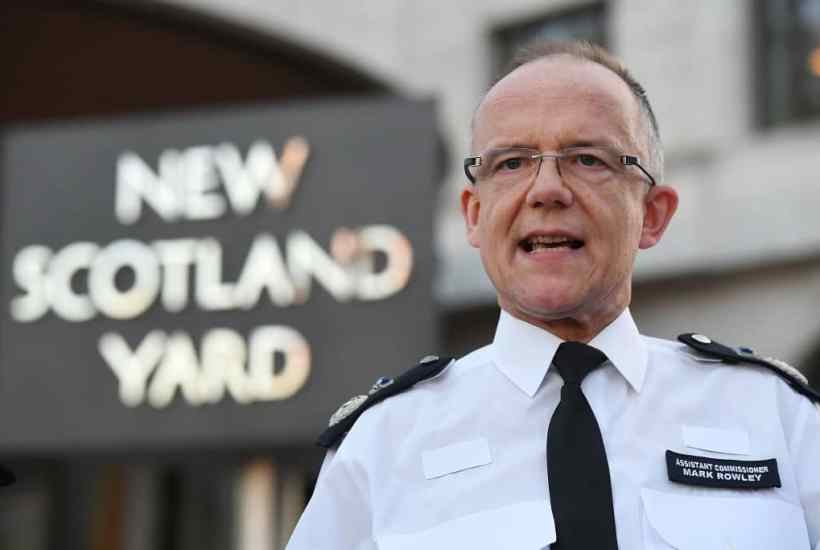

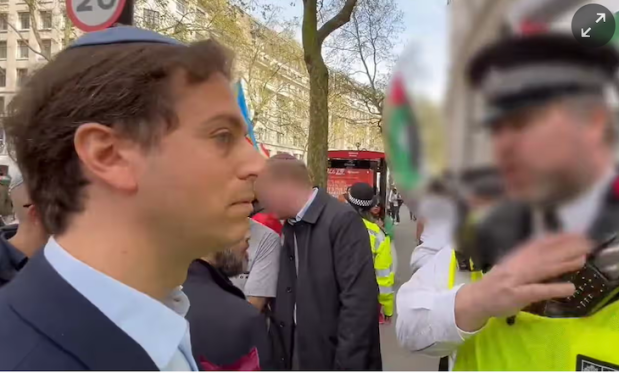

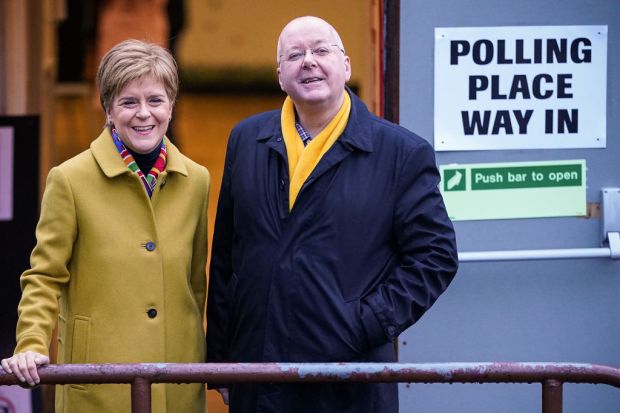
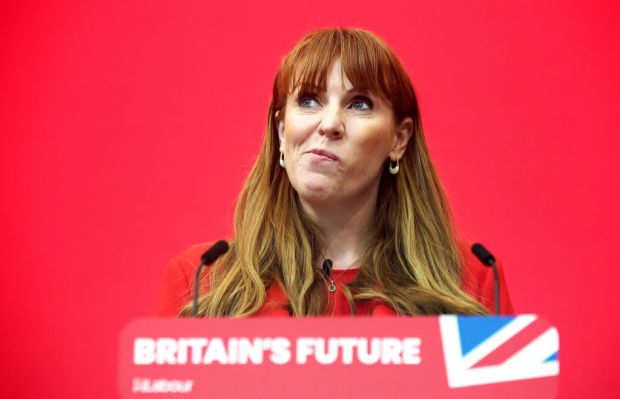
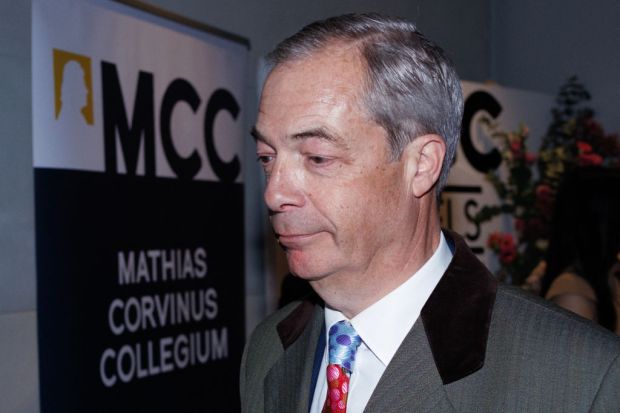












Comments
Don't miss out
Join the conversation with other Spectator Australia readers. Subscribe to leave a comment.
SUBSCRIBEAlready a subscriber? Log in